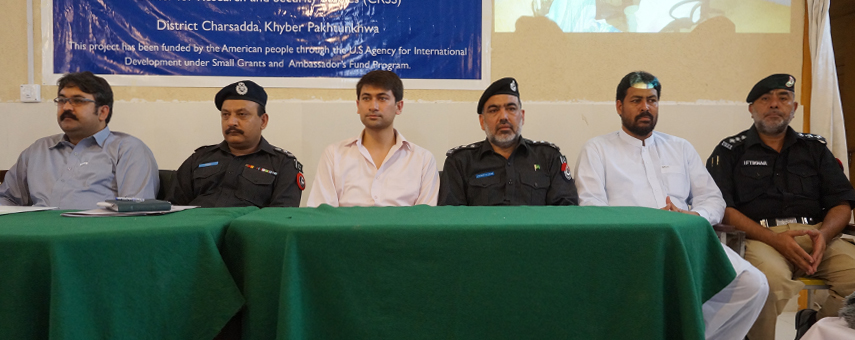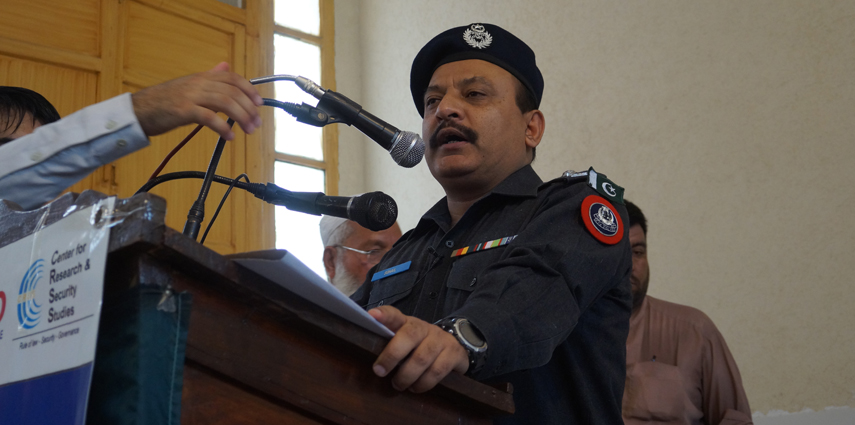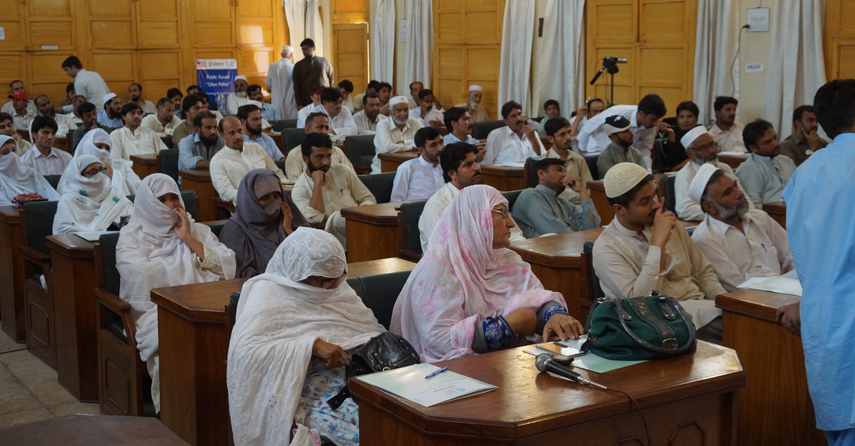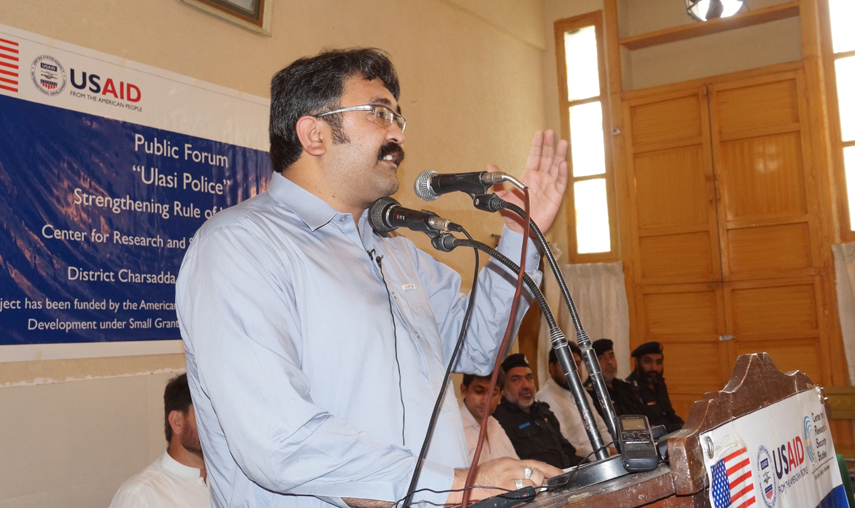The KP Police is going through the process of reformation with several significant steps aimed at reducing gaps between the public and police and fears of approaching police. The aspects of human rights of citizens – as embedded in the constitution of Pakistan – has been a special consideration in the recruit training program. The recruitment system of KP Police is ever more transparent; free from any sort of political influence. The reforms in the KP Police have significantly reduced the crime ratio in the province.
These were the remarks made by Mr. Sohail Khalid, District Police Officer (DPO), Charsadda during a public forum on police reforms at TMA Hall, Charsadda. Mr. Fahad Riaz Khan, District Nazim, Charsadda also spoke during the forum on the impact of police reforms in benefitting the general public and addressing the trust deficit. The event was attended well with houseful of participants including the members of community with diverse backgrounds, lawyers, local government representatives, media, academia, youth representatives and women. The forum was part of the project “Ulasi Police” an awareness and advocacy campaign undertaken by the Center for Research and Security Studies (CRSS) – as part of USAID Small Grants and Ambassadors’ Fund Program – to strengthen the rule of law in KP province by promoting and disseminating the significant police reforms aimed at incorporating local communities’ policing needs and international human rights standards. The endeavor aims to tackle the trust deficit between the public and police, help KP police become an accountable and community-focused police force.
Mr. Sohail Khalid said that the reforms has so far been instrumental in reducing public-police gaps and improved peoples’ access and approach to Police without any fear and hesitation. The reforms have three broad categories with initiatives for i) Capacity Building of Police, ii) Structural Changes and Reforms and iii) Community Engagement and Policing.
“At the core of capacity building initiatives are six specialized training schools including Police School of Investigation, Peshawar, Police School of Intelligence, Abbottabad, Police School of Explosive Handling, Nowshehra, Police School of Disorder and Riot Management, Mardan, Police School of Information Technology, Peshawar, Police School of Tactics, Peshawar.” The DPO said while adding that through these different types of trainings, the KP Police was then ever more public friendly, competent and capable of handling any sort of public disorder. He said that the crime ratio had been significantly reduced – up to sixty percent – in the province and attributed this to these reforms.
“We have revised and updated the curriculum of recruit training program to cater to the modern training needs. The recruits are informed and educated about the fundamental human rights of the citizens and sensitized on the notions of equal citizenry. The promotion system has been revised and linked to the performance. The recruitment system of KP Police has also been revamped and linked with NTS; making it free from any sort of political influence over hiring and recruitment process.
Newly raised units including Special Combat Unit (SCU), Rapid Response Force (RRF), Elite Women Commandos, Traffic Wardens Service are also among the critical steps which improved the operational capacity of police.
Several modern tools as part of technological reforms include Police Access Service (PAS), Identity Verification System (IVS), Vehicle Verification System (VVS), Criminal Record Verification System (CRVS), Hotspot Policing (Geo Tagging), Online FIR and SOS Call Service. IVS, VVS and CRV have been linked with NADRA database; making it impossible for the elusive criminals to evade.
“Dispute Resolution Councils (DRCs), Police Assistance Lines (PAL) and Police Access Service (PAS) and Model Police Stations are at the core of community policing initiatives. DRC is a success story of KP Police and has so far solved near to 500 cases; thus reducing the burden on Police. It is a mechanism to solve local issues with local participation. PAL is the fastest responsive body established for resolving public complaints. The issues are resolved through one window operation with minimum stipulated time. PAS is another facility for public where general public can access the high ranking police officials through electronic means of communications. Modern Police Stations provide an advanced and public friendly ambience with dedicated women counters.
Mr. Fahad Riaz Khan, District Nazim, Charsadda said that the KP Police was free from the political influence over it and a common person does not need be accompanied by a politician if he was to visit a police station. Every citizen is treated equally by the KP police irrespective of the socio-political status. The transparent hiring process – thanks to the NTS services – has dramatically improved the behavior of police towards public. These reforms in KP Police have transformed them into true public servants.
He stressed that the public should cooperate with police for information sharing and crushing crimes in the society as their roles were equally important as the police.
The participants from the community underscored the need for wider propagation and dissemination of police reforms as the people at large are not well aware of the services aimed at benefiting them.




